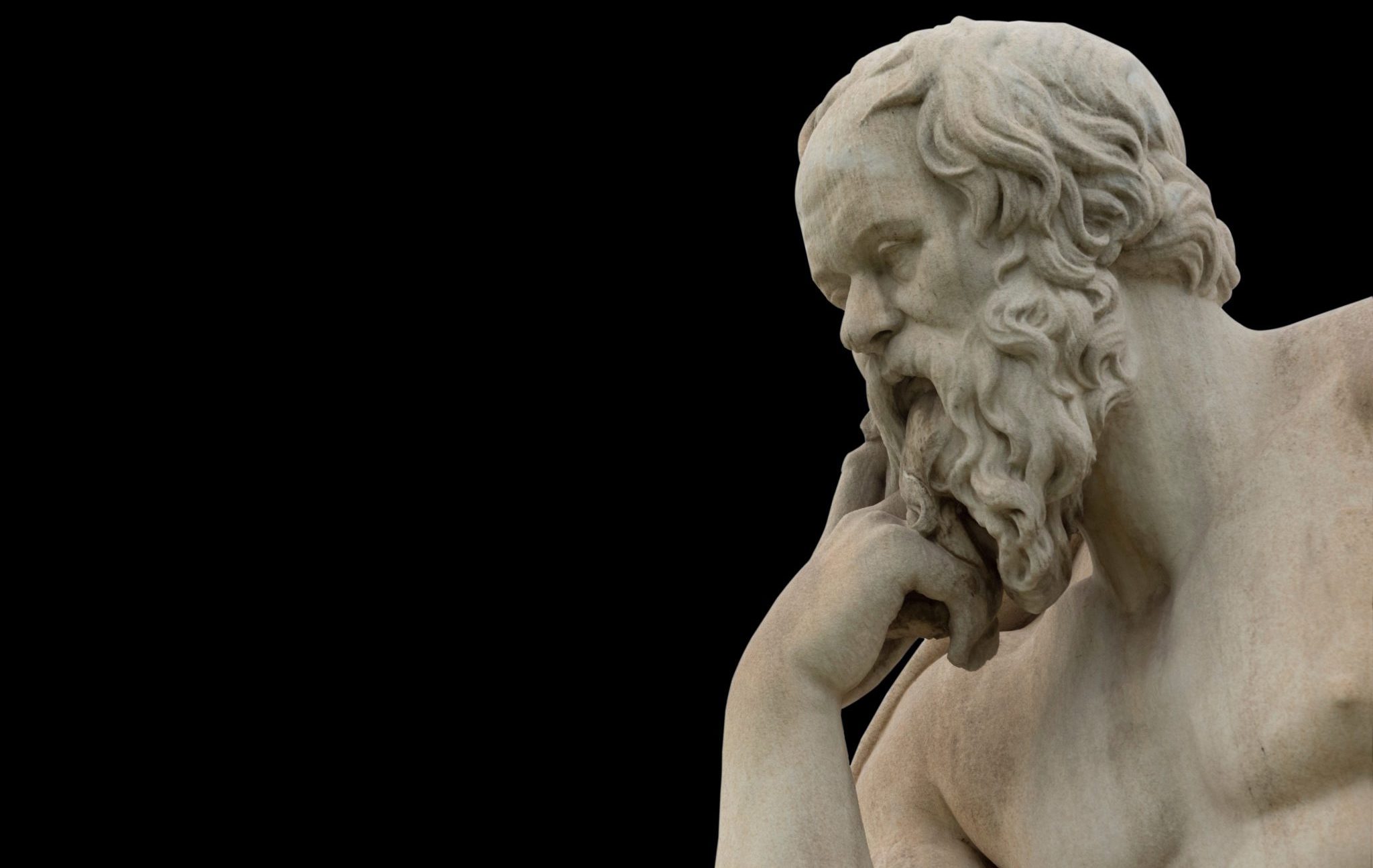Rogan’s Apology

Once there was a man who liked to ask questions. Indeed, more than liking to ask questions, it seemed as though he was driven by a divine command to inquire after the nature of things. He knew that he knew nothing, and so he sought to learn. Sometimes he spoke as though he had received instruction from another dimension, an oracle or a daemon, and young men flocked to listen to him. Though he had been a warrior in his younger years, and done the duties of a citizen of the regime, he had with time become a nuisance. His inquiries seemed to undermine the gods and the power that was wielded in their name; he corrupted the youth, so that they questioned, too.
The leading figures of the social order came and brought accusations against him, and put him on trial before the people. They said he had blasphemed, and that he had accused them and their peers of being liars, that he had called them fools. They called him an evil-doer, and a curious person who searched into things in the heavens and under the earth that are better left alone, and said he made the worse appear the better cause, and taught all this to others. Faced with such strong accusers, he apologized.
He said he was sorry and let Spotify delete episodes of his podcast. The most popular podcaster in the world, Joe Rogan has now attempted to appease the forces arrayed against him, as the initial accusation of “misinformation” was whisked to the background to hide behind loud cries of racism, that gravest of American impieties. The details of the case don’t really merit or require repeating; they have been discussed endlessly already. But the dynamic they represent is another incarnation of an old one, which the right should learn from now rather than continue to leave unlearned the hard way.
No, no, Rogan is not Socrates, nor are the circumstances of his trial those of that ancient Apology. For Socrates was tried in the court of law, and Rogan has been accused in the court of public opinion, a thing manufactured by the very media powers he has offended. Socrates faced the accusation of his city, Athens, and the due process of her laws. He could apologize to those he might have offended and a jury of his peers judged him from a seat that was theirs by right. Which is to say, while Socrates felt duty bound to offer an apologia, not to say he was sorry but to make a case for the justice of his cause as he sought to improve his fellow citizens, Rogan should have made no apology at all.
No case by Rogan could be made, for this was punishment and not a debate (those are for his podcast and the source of its danger), and no forgiveness could be sought, for none was ever on offer. Therefore, he should not have apologized. It appears evident that the video montage used to pressure Spotify into removing old episodes and Rogan into saying he was sorry was professionally produced and tactically deployed. Indeed, one of the brothers behind the leftist political action committee and media team Meidas Touch confirmed their partnership and connection to the PatriotTakes account that distributed the incriminating supercut. This was not organic, nor was this personal. I don’t know what it would look like for black Americans to ask Rogan to seek forgiveness and to grant it, but this isn’t it. The whole thing has political campaign all over every piece.
As Socrates concluded his own apology before the men of Athens, he made a prophecy. He said (using the Jowett):
Me you have killed because you wanted to escape the accuser, and to not give an account of your lives. But that will not be as you suppose: far otherwise. For I say that there will be more accusers of you than there are now; accusers whom hitherto I have restrained: and as they are younger they will be more severe with you, and you will be more offended at them.
And of course this was a true prediction, both in the life of Athenian politics and the history of Western philosophy. But it is time to make it a true prophecy for Rogan, too, though he has been no Socrates.
The American right, despite all its high conscientiousness and deep desire to simply be left alone, must learn the difference between apology and apologia, between being apologetic and doing apologetics. We must not be sorry when speaking truth, and when we make mistakes we must own those as human beings, speaking to human beings. We must understand that when an apology is demanded not by individual people—whom we might have a real relationship with, whom we can hurt and be hurt by, and whom we can forgive and be forgiven by in turn—but by P.R. statements and media hits, then we need not apologize. Indeed, in those circumstances, we must not. These kinds of cancellation campaigns are exercises in power cynically playing on moral intuitions. Conservatives, and in particular Christian conservatives, are especially vulnerable to them. To fold to these efforts is to legitimate in action what is illegitimate—to concede a lie, and in conceding, join it.
Comments